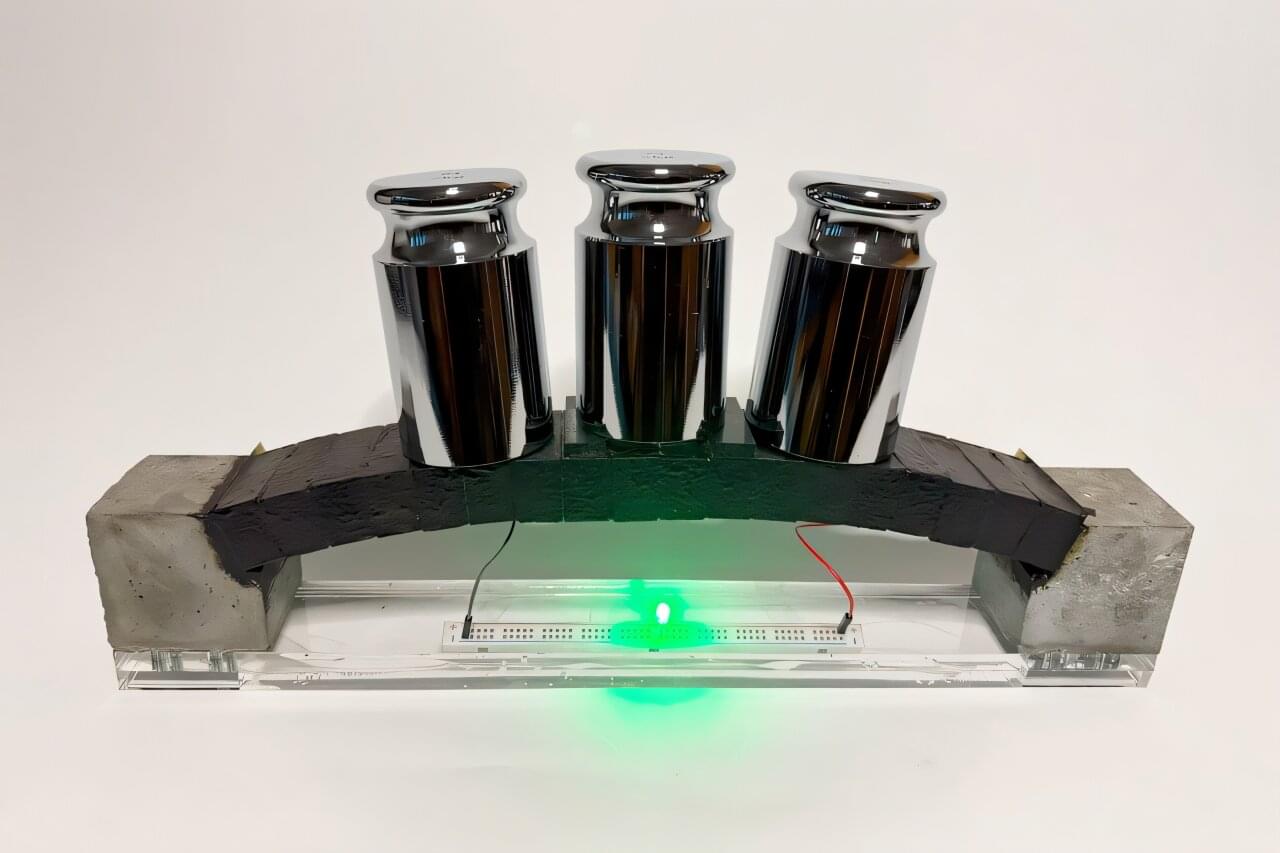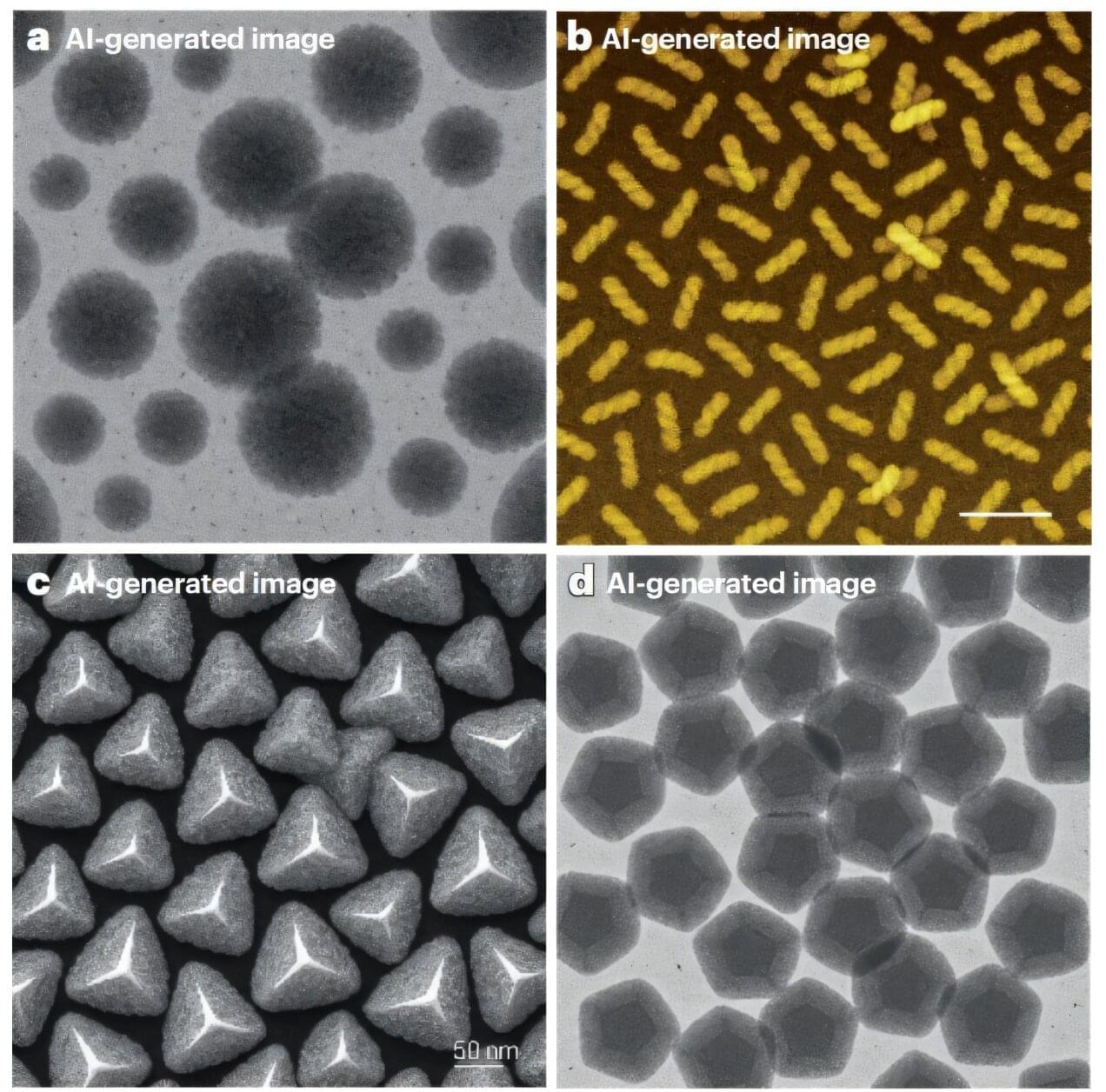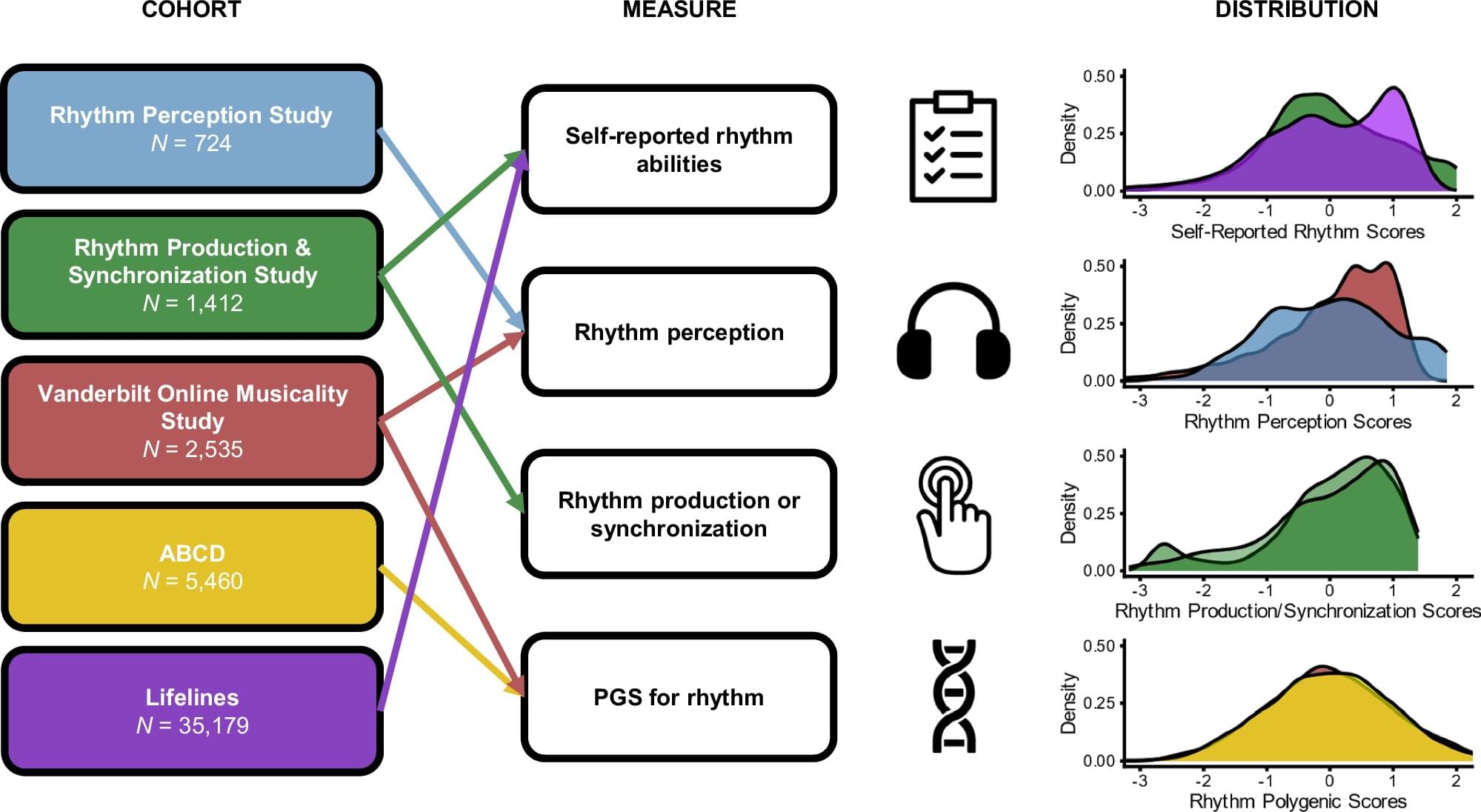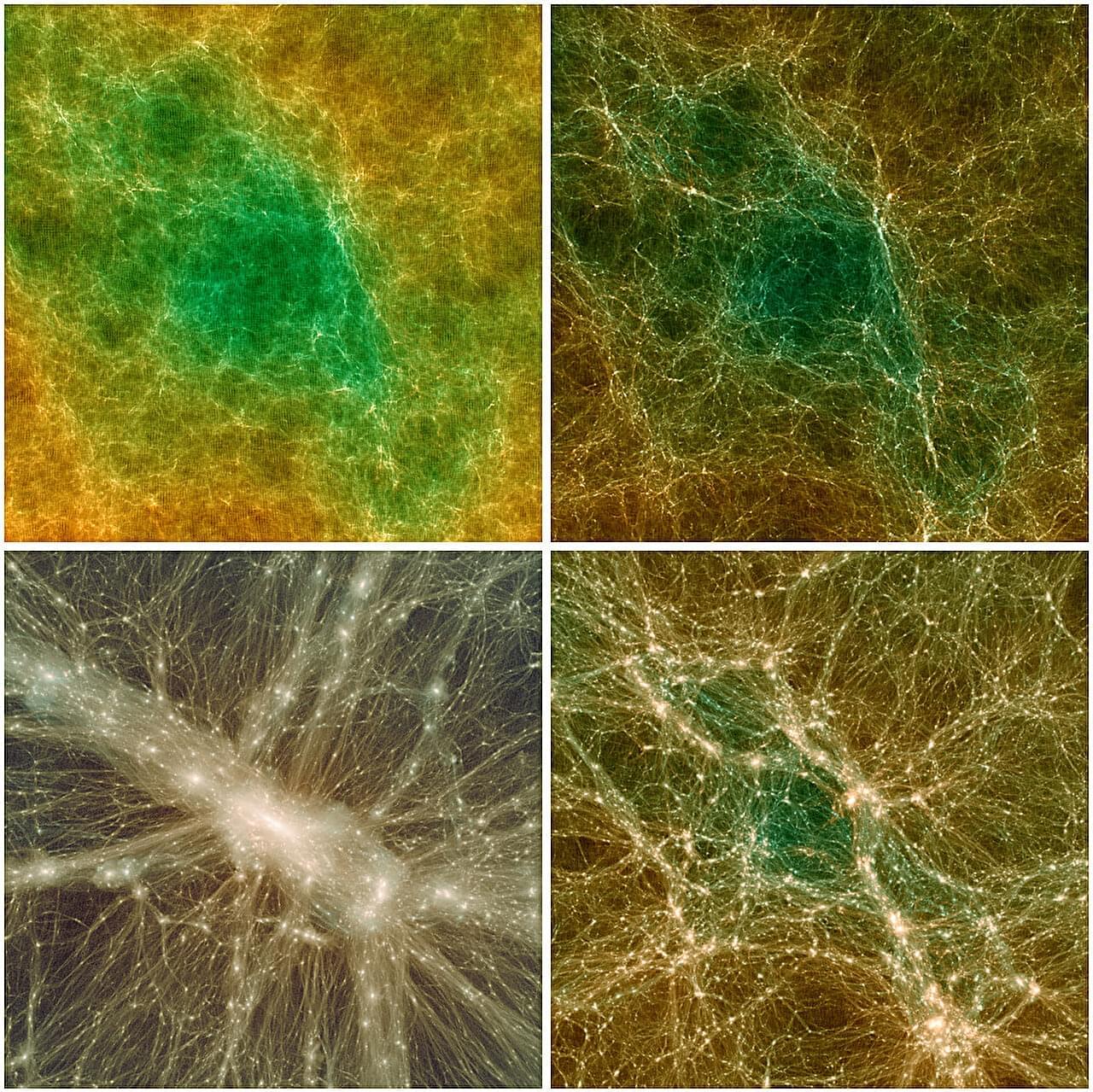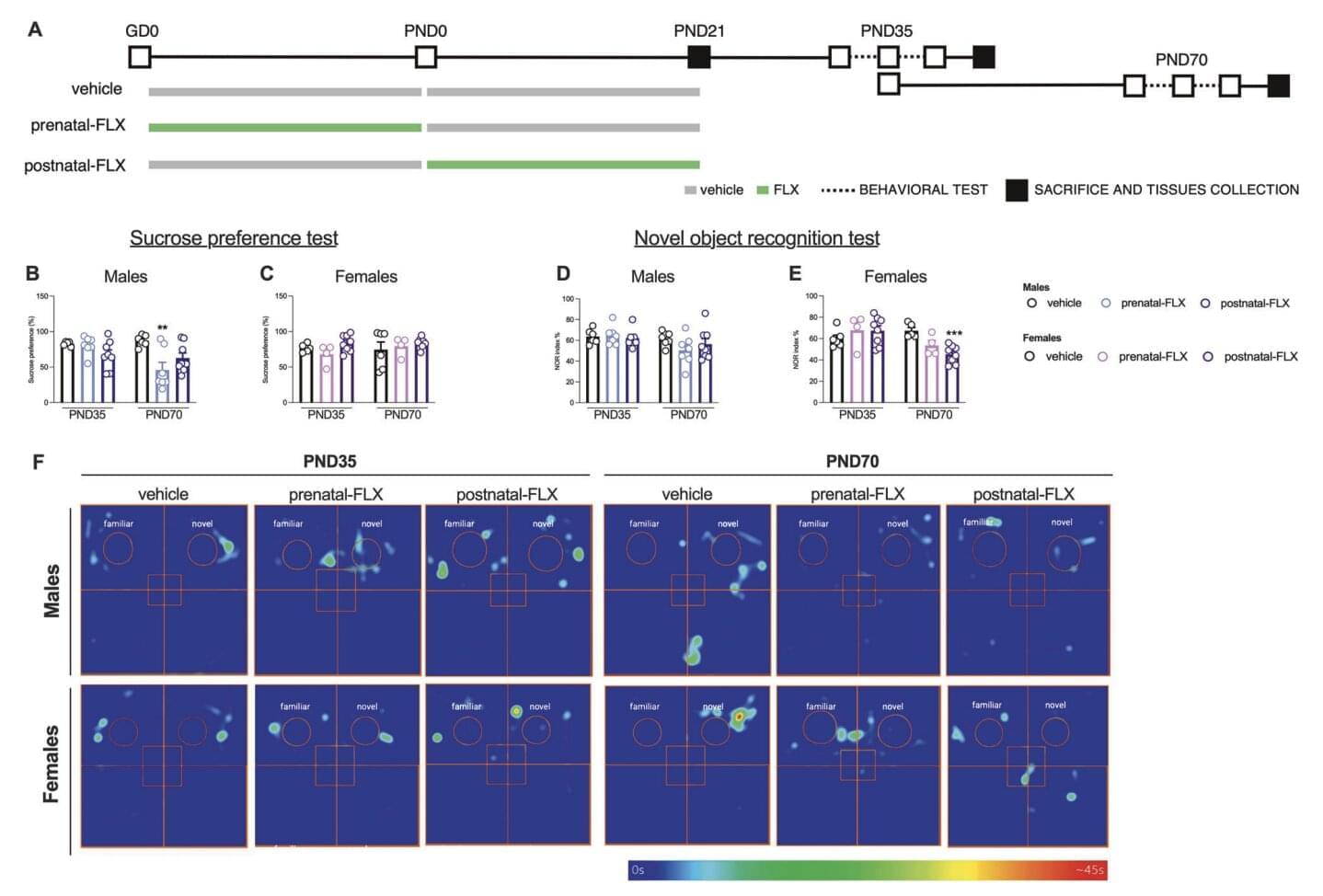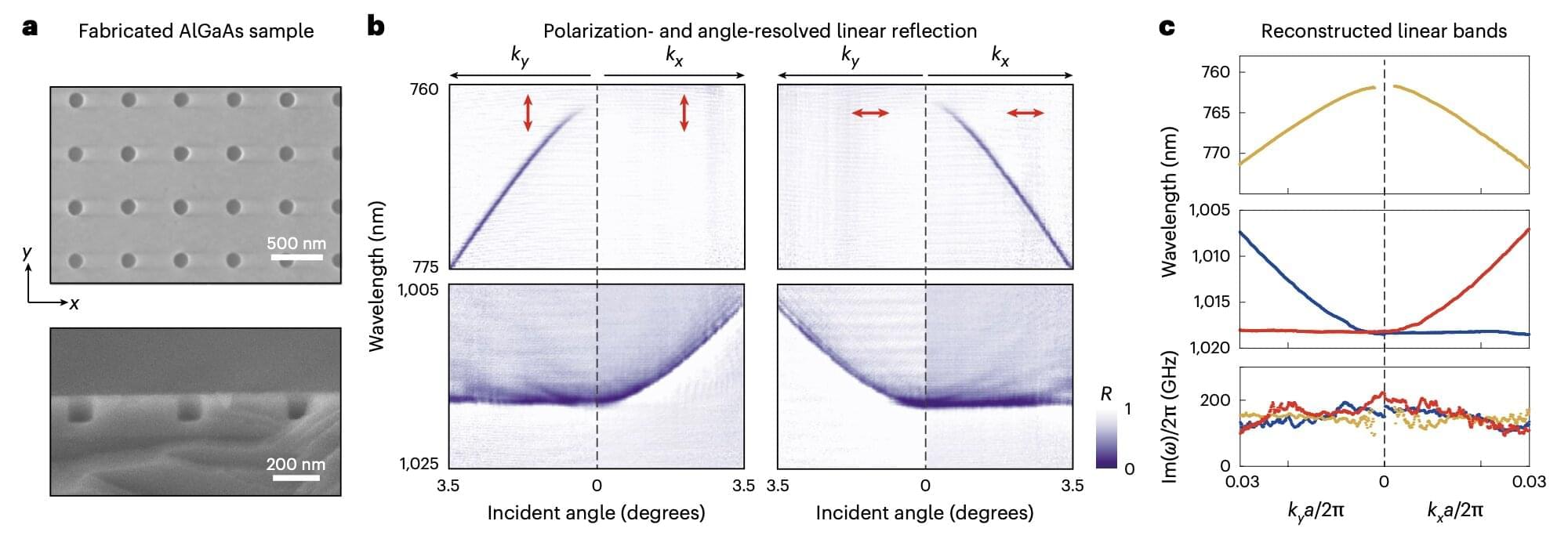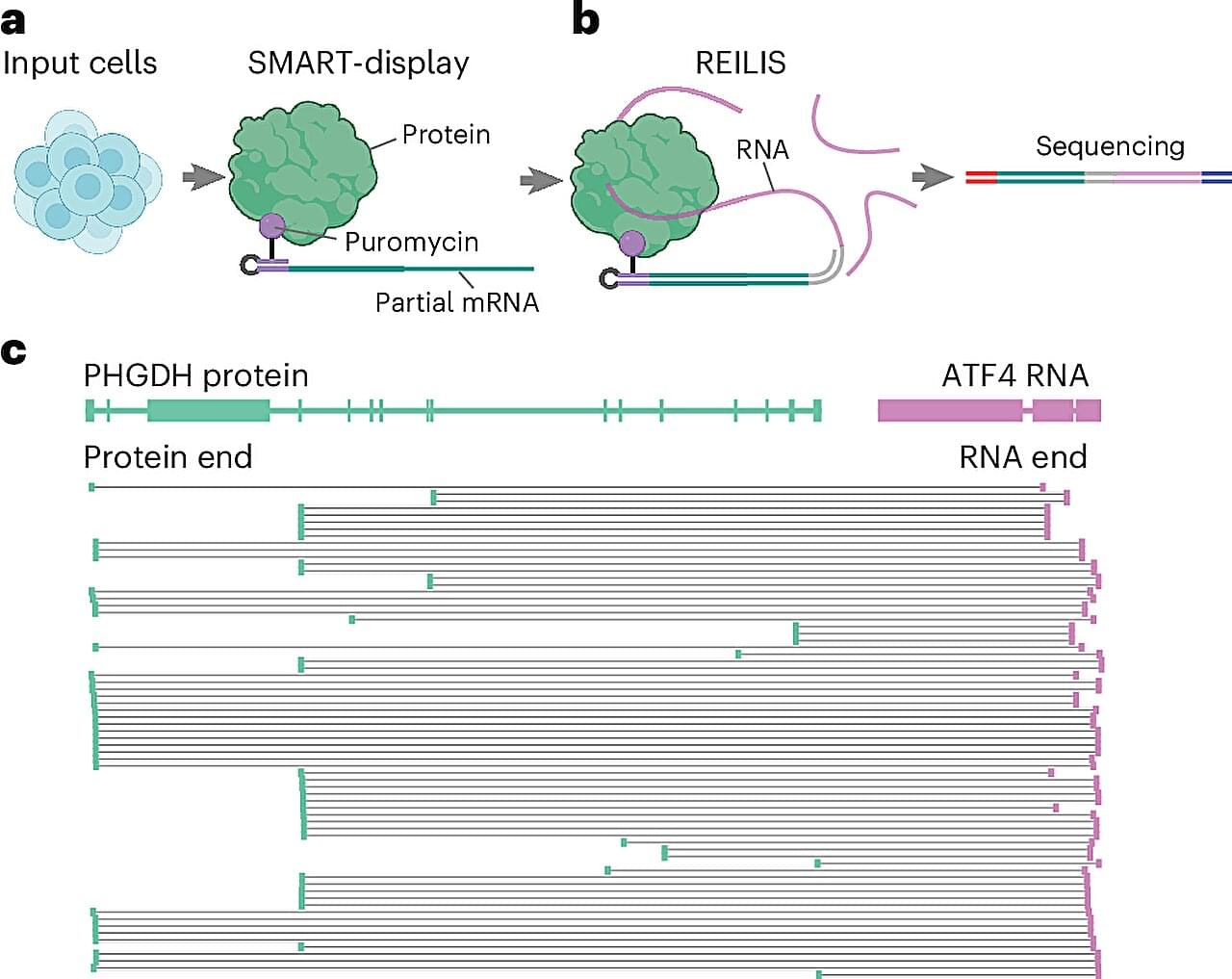Over the past few years, engineers and material scientists have been trying to devise new optical systems in which light particles (i.e., photons) can move freely and in useful ways, irrespective of defects and imperfections. Topological phases, unique states of matter that are not defined by local properties, but by non-local and global features, can enable the robust movement of photons despite material defects.
Researchers at the University of Pennsylvania and University of California-Santa Barbara recently demonstrated the realization of Floquet Chern insulators, materials in which the periodic application of an oscillating light field or other external fields give rise to a unique topological phase, in a nonlinear photonic system. The insulators presented in their paper, which was published in Nature Nanotechnology, are based on nonlinear photonic crystals, materials with repeating patterns that can control the propagation of light and respond differently to light of different intensities.
“Topological photonics explores photonic systems that exhibit robustness against defects and disorder, enabled by protection from underlying topological phases,” wrote Jicheng Jin, Li He and their colleagues in their paper. “These phases are typically realized in linear optical systems and characterized by their intrinsic photonic band structures. We experimentally study Floquet Chern insulators in periodically driven nonlinear photonic crystals, where the topological phase is controlled by the polarization and the frequency of the driving field.”


